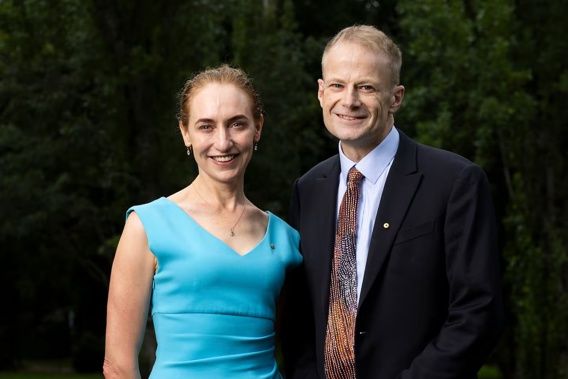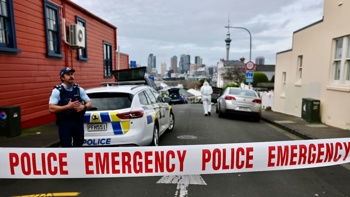
One year after he underwent radical new treatment based on his own research, Australian doctor Richard Scolyer remains free of the cancer that was predicted to have likely killed him.
Professor Scolyer, a pioneer in the field of treating skin cancer, was diagnosed in June 2023 with a subtype of glioblastoma.
A diagnosis of this kind of aggressive brain cancer often comes with a grim prognosis for patients. Most patients survive for less than a year.
When 57-year-old Scolyer told his friend and colleague Professor Georgina Long about his cancer, she said she was immediately devastated.
“I’m grieving… I’m thinking my friend is going to be gone in 12 months,” she told the BBC earlier this year.
But Long and Scolyer have turned the odds on cancer in the past.
The pair revolutionised the treatment of melanoma by using combination immunotherapy to treat it before surgery.
The new technique has led to half of all patients being effectively cured, up from less than 10 per cent in the past.
Long described their breakthrough as a “penicillin moment” and Scolyer says it was a “no-brainer” that they would apply their research to his own cancer.
Doing so meant delaying surgery to remove his tumour, a major risk given the speed at which such cancers can grow within the brain and become inoperable.
Other oncologists were reportedly concerned the treatment might hasten his death, the combination of immunotherapy drugs possible becoming toxic and risking fatal swelling of the brain.
Long told the BBC that colleagues were warning her to show more professional detachment.
“They were saying… ‘Just let the neuro-oncology experts do their thing and be his friend’,” she said.
“[But] he needs us… We have all this depth of knowledge, it’s our duty.”
‘Blown away’
Just weeks into their pioneering treatment, it became clear to Long and Scolyer that they were on to something.
Analysis of the tumour that had now been cut from his brain showed that their targeted drugs had worked.
“I was blown away. In a millisecond,” Scolyer told the BBC.
“It was bloody obvious that it is doing something.”
The scans showed traces of the drugs in the tumour and crucially showed a strong immune response.

Professor Georgina Long and Professor Richard Scolyer, in Canberra, January 24. Photo / Getty Images
This week Scolyer announced that his latest MRI scan showed no sign of the tumour.
“I’m just thrilled and delighted... couldn’t be happier,” he said.
Long said a scientific paper about their work is currently being peer-reviewed and she hoped their work could go on to help many others.
“The world can look at it, can discuss it, can criticise it, can love parts of it,” Long told the ABC.
“Then we start the foundation of doing things differently and doing new trials in glioblastoma … and it’s by doing that that we can develop the right treatments for the right patient, and then eventually they become a standard treatment, just like the current standard for Richard’s tumour, which is now nearly 20 years old.
“We want to change that. But to change that, we have to show that this actually works in larger numbers of people.”
Scolyer said he’s back to exercising and feeling much healthier, cautioning that his positive response does not mean he is cured.
“It certainly doesn’t mean that my brain cancer is cured... but it’s just nice to know that it hasn’t come back yet, so I’ve still got some more time to enjoy my life with my wife Katie and my three wonderful kids,” he told the BBC.
He admitted to the ABC that he knows the cancer is likely to return, adding: “I’m trying to enjoy life as I’d encourage all people to do: make the most of your life. You never know what’s around the corner.”
Take your Radio, Podcasts and Music with you









